Best Off Grid Power Solutions: Top Systems for Energy Independence
Thinking about getting off the main power grid? It’s a big step, but a lot of folks are doing it these days. Whether you live way out in the country, want to save some money on electric bills, or just want to be ready for when the power goes out, having your own power system can really change things. But with all the different ways to make your own electricity, how do you pick the right one? This article will walk you through the best off grid power options out there.
Key Takeaways
- Off-grid living gives you energy freedom and can save you money.
- Solar, wind, and hydro are common ways to make your own power.
- Batteries are super important for storing power when the sun isn’t shining or the wind isn’t blowing.
- Picking the right system means looking at your energy needs and where you live.
- Being off-grid means you’re prepared for power outages and can help the environment.
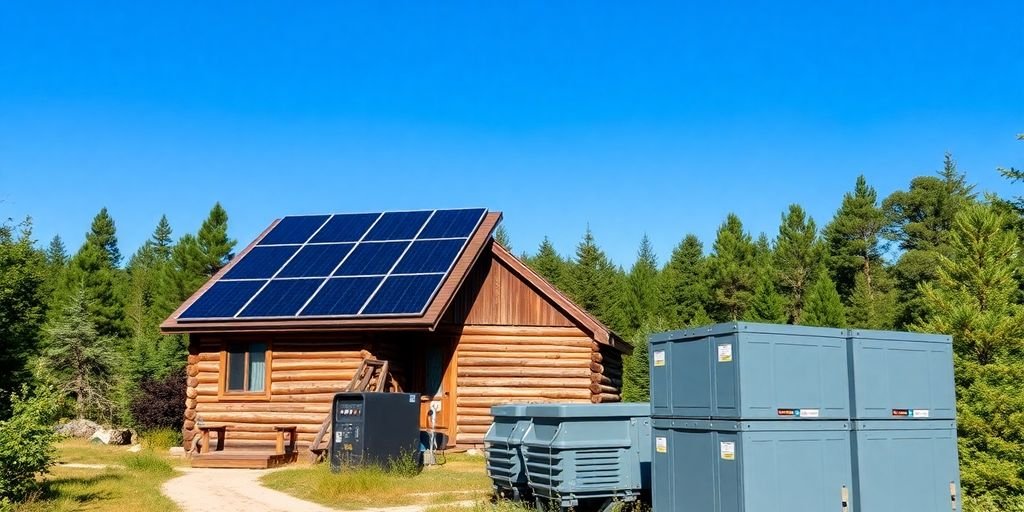
Introduction to Off-Grid Power
Why Choose Off-Grid Living?
Okay, so you’re thinking about ditching the power company? Going off-grid is a big decision, but it’s one that more and more people are considering. The main reason? Independence. People want to control their own energy and not be at the mercy of rising utility costs or, worse, power outages. It’s about taking charge.
Think about it:
- No more monthly bills from the electric company.
- You’re using renewable energy, which is better for the planet.
- You’re less vulnerable to widespread power failures.
For some, it’s a lifestyle choice. They want to reduce their carbon footprint and live more sustainably. For others, it’s a practical matter. Maybe they live in a remote area where connecting to the grid is too expensive or just not possible. Whatever the reason, off-grid living offers a unique kind of freedom.
It’s not all sunshine and roses, though. Going off-grid requires a significant upfront investment. You need to buy equipment like solar panels, batteries, and inverters. And you need to be prepared to maintain your system and manage your energy consumption carefully. It’s a commitment, but for many, it’s worth it.
Off-grid systems offer a viable power generation system alternative, especially in places where extending the main grid is economically impractical or environmentally unsustainable. This shift to off-the-grid power is also a response to the increasing occurrence of power outages, driven by aging infrastructure, extreme weather events, and other factors affecting the reliability of grid power.
Understanding Off-Grid Power Systems

Solar Power Systems
Solar power is a popular choice for off-grid living. It harnesses the sun’s energy using photovoltaic (PV) panels. These panels convert sunlight into electricity, which can then be used to power your home or stored in batteries for later use. When considering best off grid solar power systems for home energy independence, it’s important to factor in panel efficiency, system size, and local weather conditions.
Wind Power Systems
Another viable option for generating electricity independently is wind power. By harnessing the kinetic energy of moving air, wind turbines efficiently convert it into electrical energy.. These systems are particularly effective in areas with consistent wind patterns. When evaluating wind power, consider:
- Turbine size and capacity
- Average wind speed in your area
- Tower height and placement
Hydroelectric Power Systems
Micro-Hydro Systems, while less common, can be a great option if you have access to a flowing water source. These systems use the energy of moving water to turn a turbine and generate electricity. The amount of power generated depends on the water flow rate and the height from which the water falls (head). It’s a reliable source of power if you have the right conditions.
Hybrid Off-Grid Solutions
Hybrid systems combine multiple energy sources to provide a more reliable and consistent power supply. A common example is a Solar + Wind setup, where solar panels generate power during the day and wind turbines generate power at night or on cloudy days. This redundancy ensures that you always have access to electricity, even when one source is unavailable. These systems often incorporate most reliable off grid battery systems for sustainable energy to store excess power.
Hybrid systems offer a balanced approach to energy independence, reducing reliance on any single source and improving overall system reliability.
Generator Backup (Diesel, propane, and gas)
Even with renewable energy sources, it’s wise to have a backup generator. Generators provide a reliable source of power during extended periods of low sunlight or wind. Diesel, propane, and gas generators are all viable options, each with its own advantages and disadvantages. Consider fuel availability, maintenance requirements, and noise levels when choosing a generator. Many people look for affordable off grid power kits for energy self-sufficiency that include a generator. For complete off grid power system reviews for independent living, check out online resources and user testimonials. You can find solar charge controller to help manage the energy flow.
Key Components of an Off-Grid System
Energy Storage: Batteries
Okay, so you’ve got your solar panels or wind turbine doing their thing, generating power. But what happens when the sun goes down, or the wind stops blowing? That’s where batteries come in. Batteries are the heart of any off-grid system, storing the energy you generate so you can use it later.
- Different types of batteries exist, like lead-acid, lithium-ion, and even saltwater batteries. Each has its pros and cons in terms of lifespan, cost, and maintenance.
- Lithium-ion batteries are becoming increasingly popular due to their high energy density and long lifespan, but they can be more expensive upfront.
- Lead-acid batteries are a more budget-friendly option, but they require more maintenance and have a shorter lifespan.
Choosing the right battery bank size is critical. You need enough storage to get you through periods of low sunlight or wind, but you also don’t want to overspend on unnecessary capacity. It’s a balancing act!
Inverters and Charge Controllers
Alright, so you’ve got your energy stored in batteries. Now you need to actually use it to power your appliances and devices. That’s where inverters and charge controllers come in.
Charge controllers regulate the flow of electricity from your solar panels or wind turbine to your batteries, preventing overcharging and extending their lifespan. Think of them as the gatekeepers of your energy flow.
Inverters, on the other hand, convert the direct current (DC) electricity stored in your batteries into alternating current (AC) electricity, which is what most household appliances use. Without an inverter, you’re basically stuck with DC power, which severely limits what you can run.
Here’s a simple table to illustrate the difference:
| Component | Function | Input | Output |
|---|---|---|---|
| Charge Controller | Regulates battery charging | DC | DC |
| Inverter | Converts DC to AC | DC | AC |
Choosing the right inverter is important. You need to make sure it can handle the peak power demands of your appliances. If you try to run too many things at once, you could overload the inverter and cause it to shut down. It’s a good idea to get an off-grid power system that’s slightly oversized to give yourself some headroom.
Choosing the Best Off-Grid Power Solution for You
Okay, so you’re thinking about ditching the grid. Awesome! But how do you actually pick the right system? It’s not a one-size-fits-all deal, and what works for your neighbor’s cabin might be totally wrong for your setup. Let’s break down some things to consider.
Choosing the best off-grid power solution really boils down to understanding your needs and matching them with the right technology. It’s about finding the sweet spot between cost, performance, and your own energy habits.
- First, figure out how much power you actually use. Track your energy consumption for a week or two.
- Next, think about your location. Is it sunny? Windy? Near a stream? This will influence whether solar, wind, or hydro is the best option.
- Finally, consider your budget. Off-grid systems can range from relatively inexpensive to seriously pricey.
Don’t be afraid to start small and expand later. A lot of people get overwhelmed trying to build the perfect system right away. It’s often better to get a basic setup going and then add to it as you learn more about your energy needs and the capabilities of your system.
For weekend trips, a simple setup with dual battery isolator might be enough. But for full-time living, you’ll need something more robust. Also, think about the top portable off grid power solutions for remote living if you plan to move around a lot.
Conclusion: Achieving Energy Independence
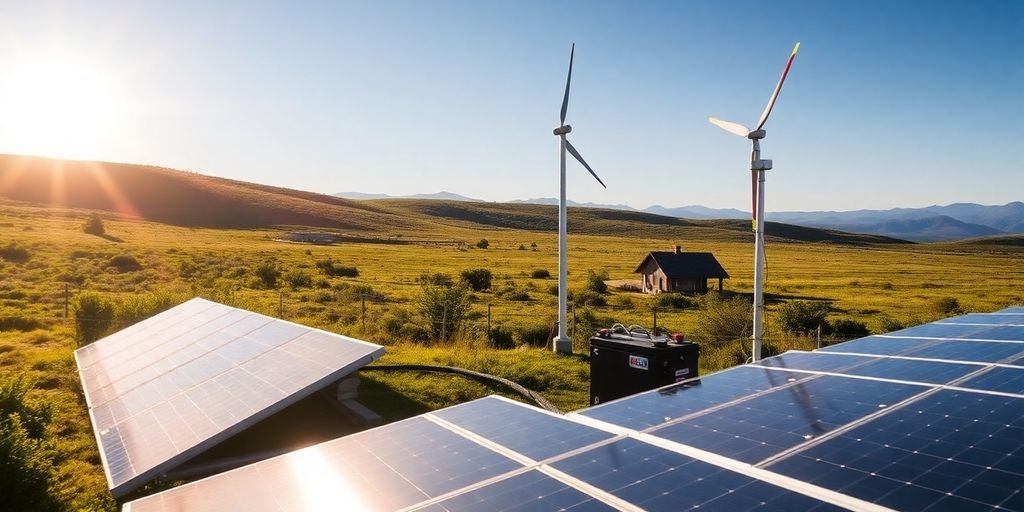
It’s quite a journey, isn’t it? From understanding the basics of off-grid living to picking out the right components and systems, it can feel like a lot. But think about the end result: true energy independence. That’s something pretty special.
Think about it: no more worrying about power outages, no more sky-high electricity bills, and the satisfaction of knowing you’re doing your part for the environment. It’s a win-win-win! Of course, getting there takes planning and effort. You need to really think about your energy needs, your budget, and the specific challenges of your location. But with the right approach, it’s totally achievable.
- Start small and scale up as needed.
- Don’t be afraid to ask for help from experts.
- Regularly maintain your system to keep it running smoothly.
The initial investment in an off-grid system can seem daunting, but it’s important to consider the long-term savings and the peace of mind that comes with energy independence. Plus, you’re increasing the value of your property and reducing your carbon footprint. It’s an investment in your future and the future of the planet.
Choosing the right solar battery storage is a big part of that. And remember, it’s not just about the hardware. It’s about changing your lifestyle, being more mindful of your energy consumption, and embracing a more sustainable way of living. It’s about taking control of your energy future.
So, what are you waiting for? Start planning your off-grid adventure today! With a reliable system, you can enjoy all the comforts of modern living while being completely independent of the grid.
Conclusion: Your Path to Energy Freedom
So, we’ve gone over a lot about off-grid power systems. Choosing the right system is clearly important. While saving money on your electric bill is a bonus, the real value lies in having reliable power when others don’t—especially during major storms or outages.. Think about it: no more worrying about blackouts. You get to decide how you power your home, whether it’s a quiet cabin or a regular house. Just figure out what you need, look at the different kits out there, and get ready to enjoy the freedom that comes with solar power.
Frequently Asked Questions
What does “off-grid” mean?
Living off-grid means you’re not connected to the main power lines. You make your own electricity, usually with things like solar panels or wind turbines. This gives you freedom from big power companies and can save you money on bills.
What are off-grid power systems?
Off-grid power systems are setups that make their own electricity without relying on the public power grid. They use parts like solar panels, batteries, and special devices called inverters to create, store, and deliver power to your home.
How do I get electricity when I’m off-grid?
The best way to get power when you’re off-grid depends on where you live and how much power you need. Solar panels are very common, but wind turbines or even small water turbines can also work. Many people use a mix of these to make sure they always have power.
What are the benefits of an off-grid system?
Off-grid systems are great because they give you energy independence. This means you don’t have to worry about power outages from the main grid, and you can often save money on electricity bills over time. They’re also good for the environment because they often use clean energy sources.
What parts make up an off-grid power system?
A typical off-grid system includes solar panels (or other energy sources like wind), batteries to store the energy, a charge controller to manage how the batteries charge, and an inverter to turn the stored energy into usable electricity for your home.
Can an off-grid system power an entire house?
Yes, off-grid systems can absolutely power a whole house. You just need to make sure you have enough solar panels (or other energy sources) and enough battery storage to meet all your home’s electricity needs, even on cloudy days or at night.

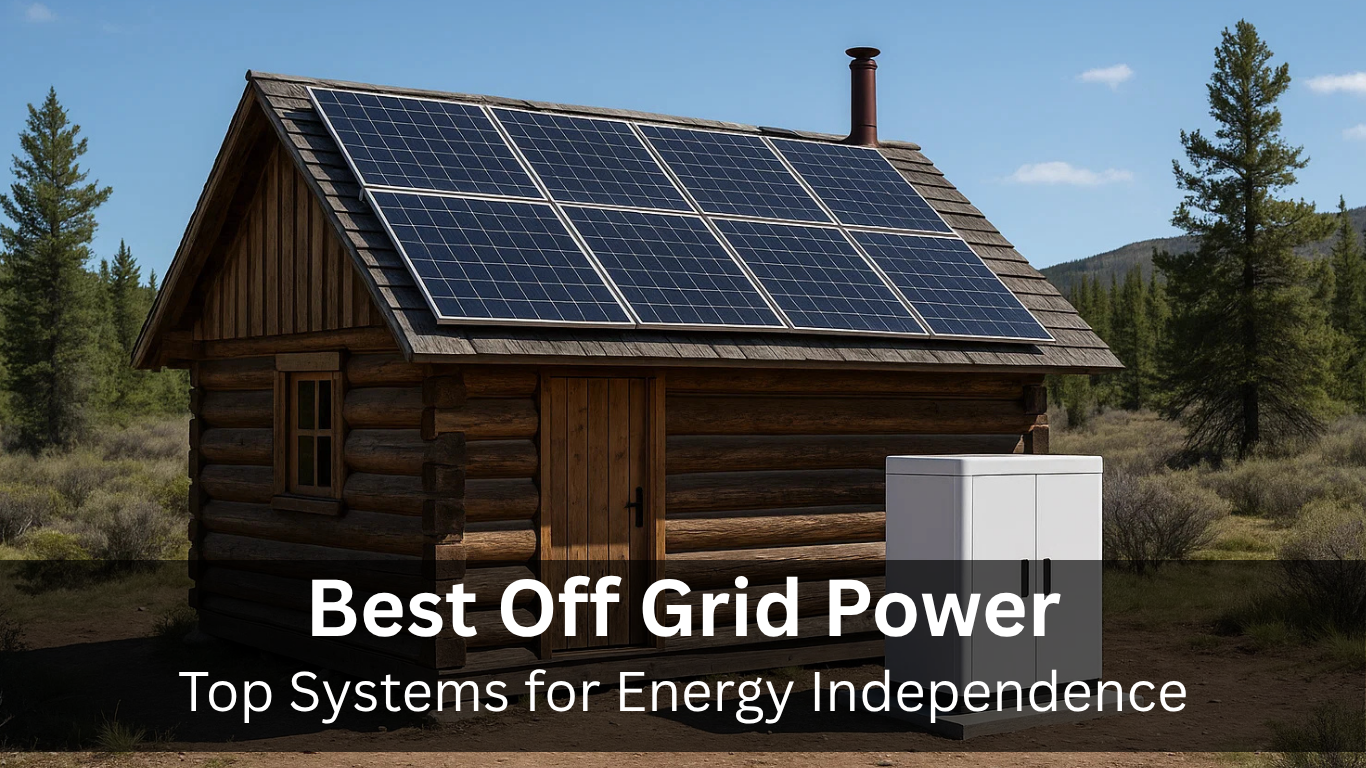
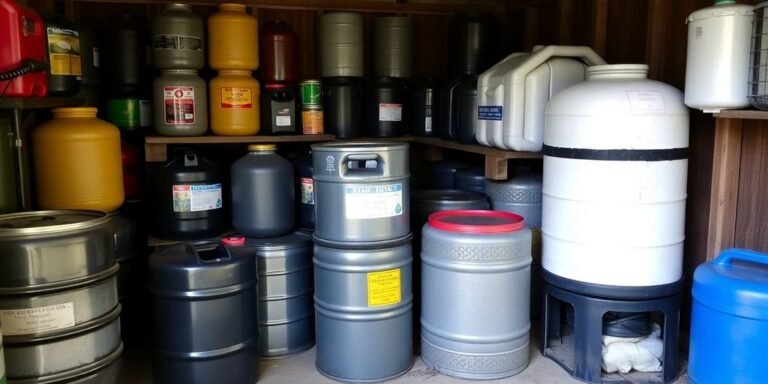
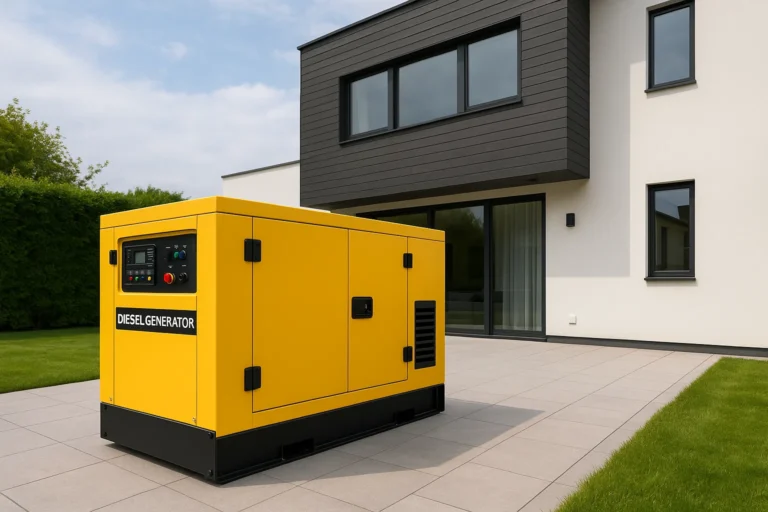

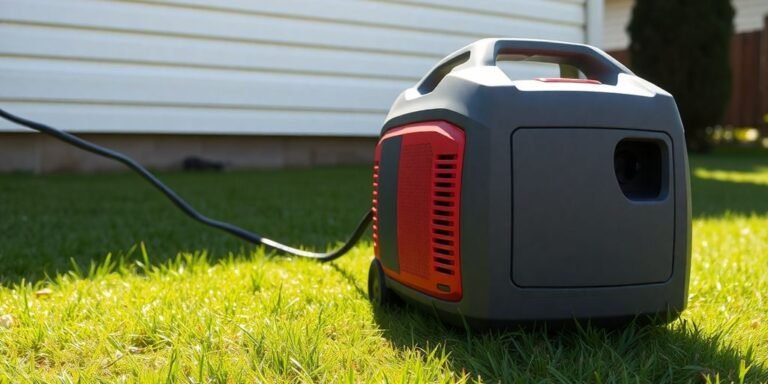
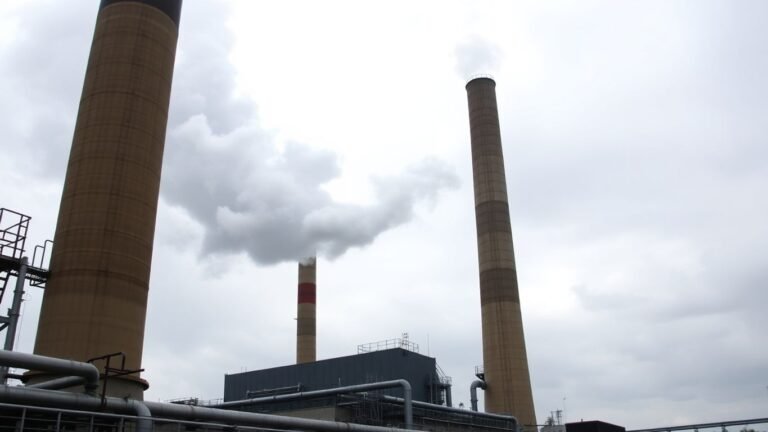
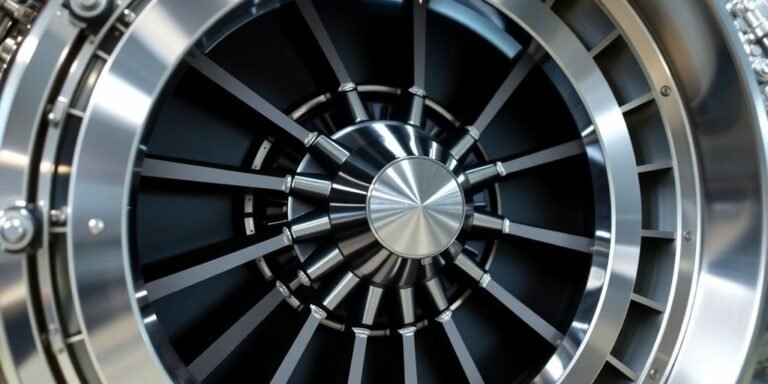

2 Comments